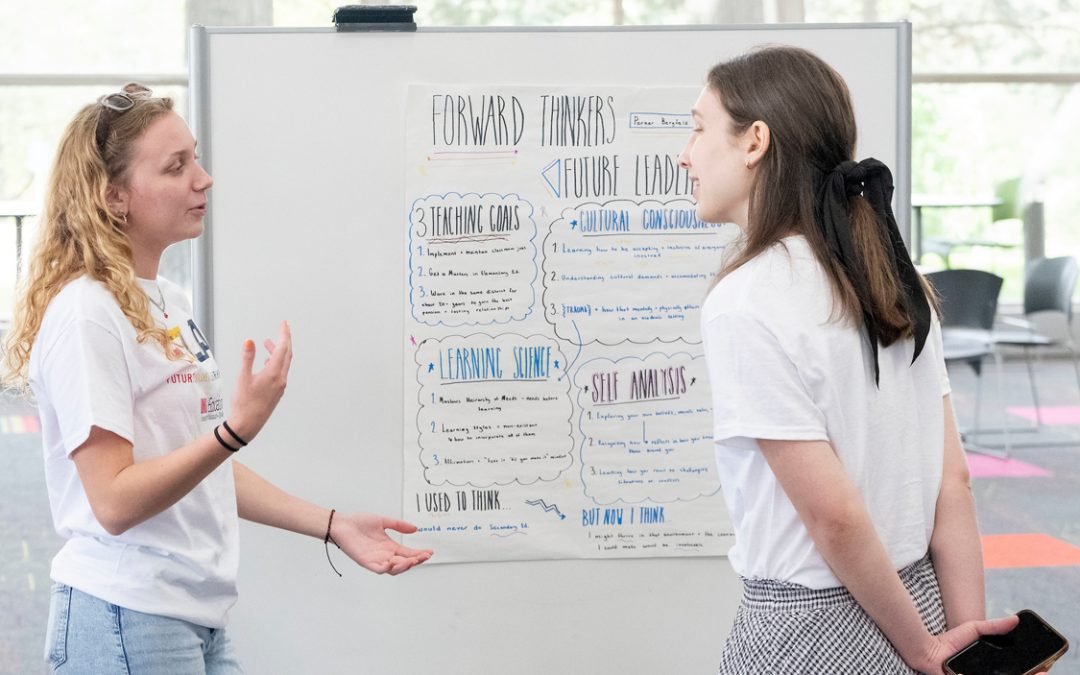
UMSL alumna Jennifer Stenger turned her dissertation about being an educator with Tourette syndrome into the self-published book, “The Life That Chose Us: Educators with Tourette Syndrome.”
When Jennifer Stenger was diagnosed with Tourette syndrome, which caused her to have uncontrollable movement of her arms and neck, she didn’t let that stop her from following her dream to become a teacher.
After eight years of teaching English at Belleville (Ill.) East High School, Stenger started working on her doctorate in education at the University of Missouri–St. Louis.
“My adviser, Matthew Davis, (associate professor of educational leadership and policy studies at UMSL) was wonderful,” she said. “He was supportive and encouraging, even when I struggled with the decision on whether or not I was brave enough to focus my dissertation on Tourette syndrome. Before writing my dissertation, I did not disclose openly that I had Tourette. Even though I was not successful at it, I tried my best to suppress my tics when I was in the classroom. My students knew I had a medical condition, but I know they picked up on the fact that I was too self-conscious to openly discuss it.”
As Stenger went through the process of researching and writing her dissertation, it was like a weight was lifted off her shoulders. She began learning of other educators with disabilities and it empowered her to share her experience.
“I found myself initiating conversations with friends and colleagues and sharing with them my experiences about being a teacher with a disability,” she said. “In August 2011, I disclosed to all my students on the first day of class that I had Tourette syndrome. I used some of the techniques that my research participants shared with me about how they disclose to their students. Suddenly, the fact that Ms. Stenger had Tourette syndrome was no longer the big secret that everyone knew about but could not talk about at Belleville East. It was indeed liberating.”
Stenger turned her dissertation into the self-published book, “The Life That Chose Us: Educators with Tourette Syndrome.” The 220-page book is available at Amazon.com.
She wants people to learn from her book that Tourette syndrome doesn’t mean a person is not a successful, contributing member of society.
“I think educators with disabilities can offer support to students,” Stenger said. “I can relate to students who struggle with their own issues. I have been there. I get it. I understand. I am not saying that a teacher without a disability cannot be supportive to students, but I can be empathetic. I have bonded with many students. Students have said to me, ‘I get down about my issues, but you have been an inspiration to me. I see that you won’t let Tourette syndrome beat you, and it gives me the courage to fight my battles too.’”
She was recently featured in the Herald & Review (Decatur, Ill.) article “Author: Disabled teachers have much to offer” and the Belleville (Ill.) News-Democrat article “Belleville teacher battles Tourette syndrome: I never knew the word ‘can’t‘.”














